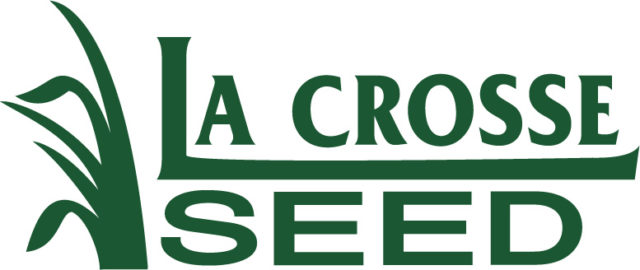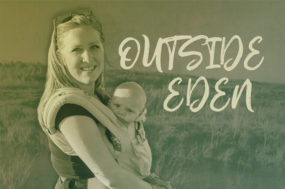Most people recognize Gary as past President of the National Hay Association, but he will tell you that isn’t the most important part of his business.
To him, when the day is over, it is much more about raising a quality product and nurturing the relationships that have carried the business for nearly four decades.
The opportunity to get to know Gary, Amy and the rest of the team at Freeburg Hay Farm came during a recent visit to the area. It didn’t take long to find out that this operation relies on the strength of family and friends to make it all come together.
Early on, Gary knew he wanted to be in charge of his life, his farm and his ability to make it work for his family. “I chose to remain in the hay business because, of all the major crops,
I have the control over prices and am able to benefit my customers. I am also able to develop relationships that continue to benefit the business. If I have the right quality and can supply them in a timely manner, everyone is able to benefit. Honestly, I just have a real passion for hay.”
“The biggest key to making the business what it has become was to not be a renter. If you are going to put in all the work, you might as well own the land you are working on.
I learned in 1976 that cash-rent was not the way to go, and if I was going to work that hard, I was going to own the land I was putting my efforts into.”
Amy was quick to point out that this business has been just as important to her as a mom as it has been as a partner. In fact, the two became inseparable early on.
“I do what I do because I married a hay farmer. I grew up on a farm, and I met Gary in college. It was just one of those things that came together and has been working ever since.”
“We started with nothing and everything we have done has been a culmination of 35 years of working together. The best thing the business gave back to me was the opportunity to stay home with my kids.
I was able to do the books and answer the phone while being a wife and mother. Having the business out of the home taught all three kids both how to work and the importance of having a business sense about them.
I think growing up in the middle of a rapidly growing business helped develop both of these skills in all of them.”
Over the years, there have been the ups and downs that go with every business, but Gary and Amy have made the commitment to work through it all.
Amy remembered, “We have never seriously thought about quitting the hay business. 1984 was a low point for us in the business. We had just tied into a large piece of ground and were working with newer equipment, so we were facing a lot of payments at the time.
It was one of those years that started raining in early spring and didn’t stop until the first part of July. Being as we are sitting on Missouri River bottom-ground, the farm flooded, and we didn’t see much of a crop that year.
It was tough, very tough on both of us, but we worked it out somehow and haven’t looked back.”
Gary pointed to one overriding principle that has directed the business over the decades. He has carried it with him from the beginning and hopes it will continue with his sons. “If there is one governing principle that has guided the growth and strength of this business, I would say it is quality.
If you have quality you can work with your customers to create situations that benefit everyone. Mother Nature can make it interesting sometimes, but always making the best crops you can will be the most important thing you can do from year to year. Because this business is one of supply and demand, you have to fall back on the idea of repeat, repeat and repeat again customers, and quality hay is what will keep them. It is hard to stay in business otherwise.”
For both Amy and Gary, the hay industry is one of the best industries in the world. They are both thankful for what is has meant to them in the past and look forward to the future and what it still holds for the Freeburg family.
Gary stated, “The greatest strength of the hay industry is the ability for producers to market their own products and create the relationships that will lead to repeat business for years to come. Alfalfa is also a great nitrogen producer, so nothing beats it when you need a solid performing rotation crop. And what else can you say other than there is nothing better that the smell of freshly cut hay.”
“The greatest weakness of the industry is the producers who do not manage the quality of the hay they produce. Amy and I are always telling people the first thing they should do when they get into the business is to build a barn. If you take care of it, even your lower quality bales, you can guarantee the buyer will get what he is paying for and no one has to question your abilities or integrity.”
Amy added, “Today, it is great. Just over the last few years we have seen the benefits of sticking with something over a lifetime. We have grown children working with us side-by-side, coming up with ideas of their own. And even the years that were not really good years, we still held our own or took baby steps forward. You finally reach a balance where you have more assets than liabilities, and you can go out and buy the highest quality hay when it is being put up. It really has been a growing process.”
And growing is what has happened over the last few years. In 1994, John and a long-time friend of his, Tom Dreesen, decided to come together to work as a team with both hay and row crops. In talking with Tom and Gary, you could see that this partnership began a long time ago as friends and then a working relationship of mutual benefit naturally fell into place. Tom put the relationship with the Freeburgs this way:
“Gary and I had been talking a long time before we started in with it (the partnership). We continued on until we were able to work things out in 1994 to come together. Gratefully we were able to make things work out both as friends and as business partners, and we have all been able to gain from it over the long run.”
“The biggest strength of the company is the ability to produce high-quality products and market them effectively. It has always been the strength of Amy and Gary, and I hope to be able to continue to work with them in watching it continue to grow and prosper.
“In working with the Freeburg family, I have never had to worry about who is going to do what. Everyone shows up ready to get things done, and it doesn’t matter what needs to be worked on. Everyone is ready and willing to get it done.
Most companies have problems with people who are not willing to get things done or are too busy worrying about themselves. Gary and his boys come at this with the attitude that we all are a part of it, and we all are able to get things done. And it always does.”
Not to be outdone by their fathers, Gary and Amy’s sons, Jory and John, and Tom’s son, Jeff, are all full-time employees of the business and are poised to take over the reigns of the business over the next several years.
Going from their 20s into their 30s, these boys have been able to come into their own, ready to take the hay business into the future. Jory talked about his experience growing up and coming into the industry.
“Even though I grew up with it, I have come to really enjoy being in the hay business. It brings me a lot of satisfaction, and it is what I know. “Growing up in the hay industry meant my summers were pretty full. I remember running equipment starting at age 12, and by 14 I was into it almost every day.
But it was what I wanted to do, so I just learned to make the most of it. I might have missed out on baseball and some other summer activities, but it just became a part of me, so I don’t feel like I missed anything.
“The most rewarding part of coming up in the business has been to see the farm grow over the years. I really like the crops, so being out in the field is a pleasure for me.
I like to walk through the fields and see the changes over the months as they develop and mature. Very few things in life can bring you the satisfaction of watching a field go from tilling to harvest.
“The driving force I follow is the desire to be successful at what I do. I have learned, watching my mom and dad, that you have to be willing to work hard to make things be a success, and I hopefully can continue to do that as my brother and I take on more and more responsibilities. I just want to be good at what I do.”
Rounding out the Freeburg Hay Farm team is Amy’s brother, Kent Wathier. Kent has long been what Gary describes as the quiet strength around the business and has always been there when he was needed. Gary only has good things to say about everyone, and he has seen a lot in his day when it comes to family, friends and farming.
“The high point and low point of the hay business, or any farming business for that matter, is the family aspect. I have seen some farms where four generations have taken part on the same piece of ground and everyone has been able to benefit and grow from working together.
“I have also seen family farm businesses where petty arguments and continually questioning, ‘What is in it for me?’ has torn the business apart.
The nice thing about being in farming is there is room for everybody if you are willing to work, especially if you can work together as family and neighbors. From the biggest dairies to the smallest Amish farms, you can see the families that work together.”
In trying to pin down the feelings that have carried this team through the years, John summed it up this way:
“The most rewarding part of being raised in the hay industry is to come to the end of a season and see the hay stacked in the barn, knowing you have done your best.
There are times when the long hours and repetitive nature of day-in and day-out becomes somewhat tedious, but the rewards far outweigh some of the long days it takes to make it work.
“If you are making a profit don’t complain, and be happy.” FG









